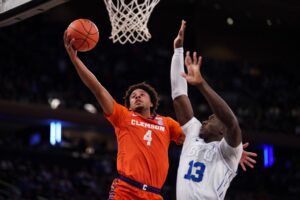Tourism has dipped precipitously in Las Vegas, Nevada, but revenue has continued to climb at the gambling mecca of the Western Hemisphere despite a drop in foot traffic from out-of-towners.
Baccarat Increases Push Revenues Higher
The July financial reports show that Clark County casinos delivered 3.24% more revenue this past July than the previous year, generating $1.15 billion in the sizzling swelter of the Nevada sun. Las Vegas, the largest gambling draw in Clark County, reported a 5.6% increase over last July despite six consecutive months of tourism drops.
However, the casinos’ spike in revenue is directly attributed to baccarat, up a staggering 80% from last July. Without that gain, revenue would have actually dropped in Sin City. The news is good for those who make their living in the gambling sector of Las Vegas and the surrounding area, but those employed in other aspects of the hospitality industry are not so lucky.
However, the more prevalent stadium baccarat makes the game more accessible and lends a privacy that traditional live dealer baccarat does not possess. The revenue derived from baccarat soared from $64 million a year ago to $114.5 million in July 2025.
A Shift in Player Preferences
Gamblers looking for something novel and different from traditional blackjack or slots have been gravitating to baccarat. The rules make it a fairly simple game to learn, and it allows a different experience for those coming to gamble in Las Vegas.
Keith Smith, President and Chief Executive Officer of Boyd Gaming, said, “Growth in play among our local guests more than offset softness in play from our out-of-town customers. We remain confident in the prospects for the Southern Nevada economy and the future of our local business.”
Leaving Las Vegas
July’s tourism numbers fell by 12% compared to July 2024, continuing a trend that has seen tourism dip in the desert. It was reported by the Las Vegas Convention and Visitors Authority that 420,000 fewer visitors came to Vegas than last year.
The street talk among gamblers suggests that soaring resort fees and costlier food and beverage offerings are pricing the ordinary person out of spending their discretionary income in Las Vegas. An economic vacation and value for one’s dollar have always been the allure of Las Vegas, but that is not so much the case anymore.
Locals vs. Tourists
Locals prefer the less costly downtown casinos, where free drinks and better odds are more plentiful. However, the Las Vegas Strip is where many tourists go when coming to town, but those pricey hotels have gotten too expensive for many of the average Americans and Canadians who come to Glitter Gulch.
We should also point out that the proliferation of casinos throughout the United States adversely impacts Las Vegas’ exclusivity as a gambling destination. Moreover, sports betting and iGaming can also be as near as a gambler’s mobile device, as 39 US states have legalized licensed sports betting, while thousands of casinos, both tribal and commercial, dot the American landscape.
Lastly, an unpopular amendment added to President Trump’s budget bill shows that only 90% of gambling losses can be written off beginning in 2026 instead of the 100% most gamblers have become accustomed to. However, that is being fought in the legislature, and Nevada’s House Ways and Means Committee issued the following statement:
“For those of you concerned about this change, I can tell you that members on both sides of the aisle have heard you, and I know that many members on both sides of the aisle are open to working to address it before it goes into effect on January 1.”







